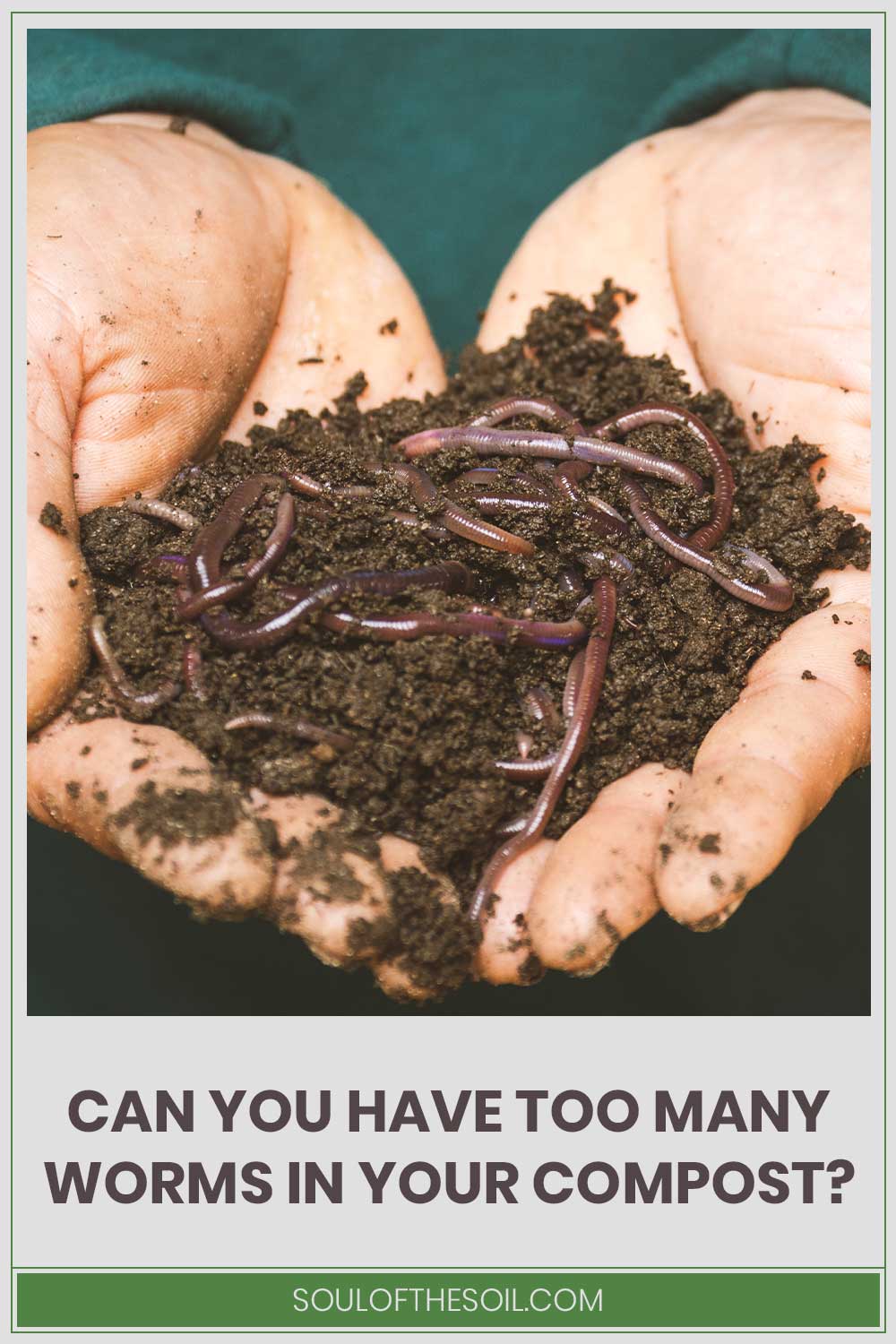Can You Have Too Many Worms In Your Compost?
We may earn commissions for purchases made through links on our site. Learn more on our about us page.
Worms some use them for fishing, and some for gardening. Worms are great, especially for our environment.
They’ve been known for converting waste into a nutrient-dense product that keeps our soils healthy, making them perfect for those who utilize compost in the garden.
Not only can there be too many worms in a single compost bin, but you also have to worry about keeping the worms healthy and happy – keeping them safe from any other pests that might indulge in your compost. So let’s talk more about worms and compost!

How many Worms Should You Put in Your Compost?
When deciding how many worms to place in your compost, you need to understand that you need to follow a very specific worm-to-compost ratio. For example, it’s recommended that you gather 2,000 worms for every daily pound of food waste you add to the compost bin.
That sounds like a lot of worms to add into a bin, right? So let’s discuss more regarding what might happen if there are too many worms in your compost bin. Including signs to be on the lookout for and what might happen in the compost bin. Read more below.
What Happens if There are Too Many Worms?
If too many worms are located in a single composting bin, you might find that the worms will multiply – causing overall problems for the composting process. Adding too much compost after finding that your worms have multiplied may also cause more issues listed below.
- Pests
- Excess Moisture
- Unbalanced bacteria
- Odors
- Acidity
Do Worms Multiply in a Compost Bin?
Yes, worms can reproduce and multiply – rather quickly as well. For example, a newly hatched earthworm will become a breeding earthworm in as little as 3 to 4 months.
Imagine repeating this process over and over again and how many times it happens throughout the year alone.
Worms are more likely to reproduce successfully, especially if conditions are just right, such as in your compost bin. However, if there are too many worms in one place with not enough of the right compost – the worms could then get sick.
Pro Tips: Worms in Compost
- Worms do not like acidic fruits and vegetable scraps in the compost.
- Scraps such as hair clippings, shredded black-print newspaper, and herbivore animal manure are all ideal properties to add to your composting hotel – the worms will enjoy these too.
- Worms can break down compost within two short weeks and keep them well-fed by adding at least one pound of waste per day to keep them satisfied.
- Stir your compost bin often to aerate the waste and assist your worms in reaching more difficult places below your turned compost.
- Keep your compost moist by adding additional water once a week, and this will keep the area moist enough for the worms to travel and sift through the waste.
Final Thoughts on Worms in the Compost Bin
Overall, you can have too many worms in one compost bin. If, for example, you are adding at least one pound of food waste into your compost bin per day, it’s safe to put 2,000 worms into the compost bin to break that down.
However, if there are too many worms in the bin, you could run into the problem of having sick worms.
Worms reproduce and multiply in compost bins because it is a good environment for them. With the right amount of food source and moisture, you’re bound to have worm babies in your compost bin this year.



Leave a Reply
You must be logged in to post a comment.